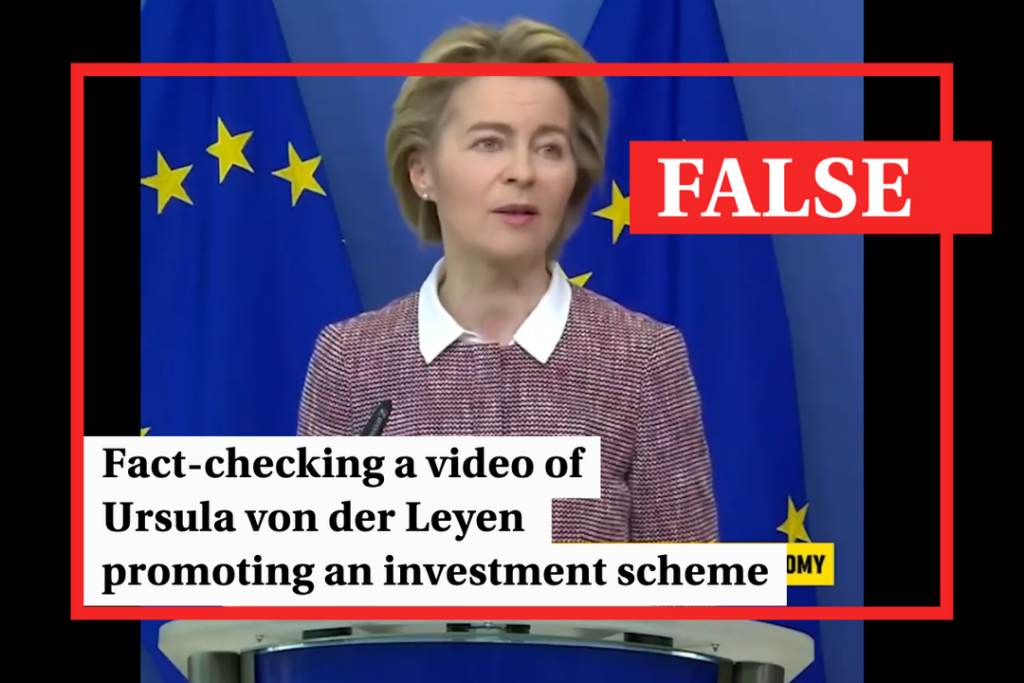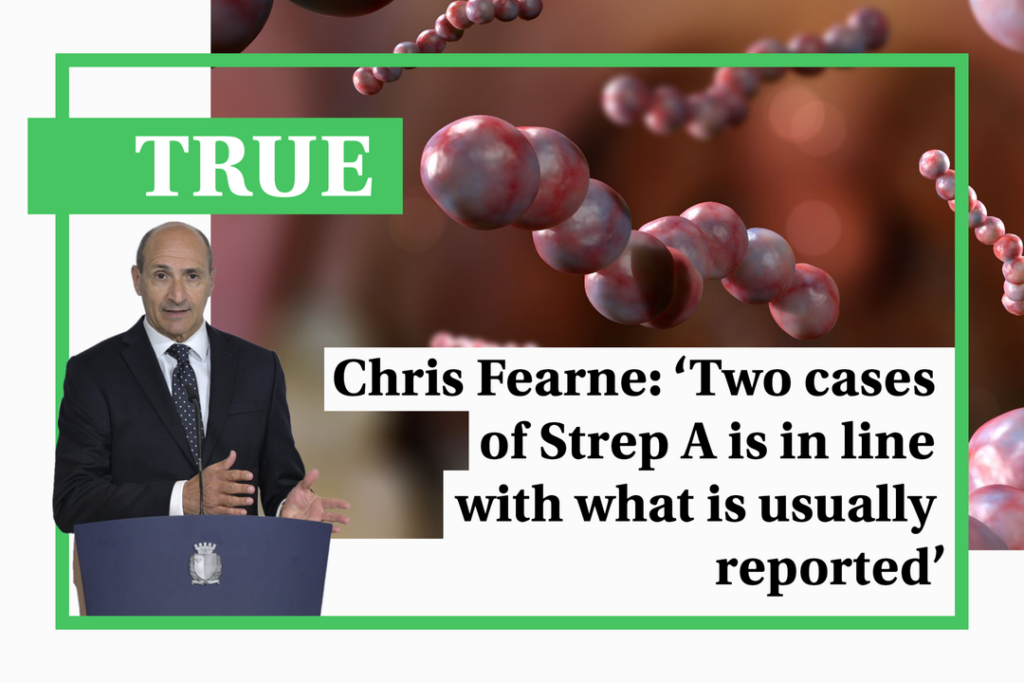A video shared on Facebook on Friday 2 February shows European Commission president Ursula von der Leyen seemingly announcing and endorsing an EU-wide investment scheme targeted at European citizens.
Von der Leyen is seen talking about the importance of “improving the living standards of our citizens”, before going on to introduce the European Partnership Investment Programme. The programme, she says, will help “Europeans survive these difficult times”.
She explains that the scheme offers European citizens additional income starting at €2,000 per week by investing in established European companies.
The video attracted widespread attention, being viewed thousands of times and quickly racking up hundreds of shares and comments, including many from people asking how to sign up for the scheme.
But, although the scheme may appear legitimate at first glance, closer inspection shows that both the video and the scheme’s website are fraudulent.
Newly set-up Facebook pages and a homely German pub
The video is being shared by a Facebook page called Euro Life, which describes itself as an “insurance agent”.
The page has very few followers and virtually no content, having only been created on January 30. It uses the EU flag as its profile and cover images, in an apparent attempt to appear genuine. There is no other information listed, aside from a link to the investment website investing.com.
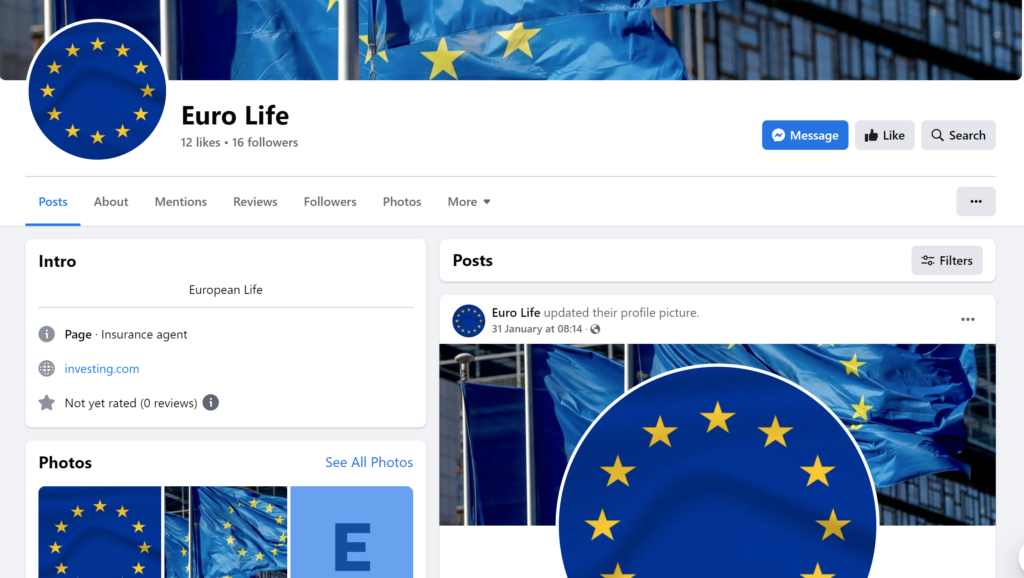
Another, almost identical, page bearing the same name was created on Friday morning, suggesting that the scammers may be intending to share similar fake videos through different channels.
This second page bears a strikingly similar layout and description to the first, albeit with a different profile picture. Listed in its contact details, bizarrely, is a German telephone number belonging to a Berlin pub which, several glowing Tripadvisor reviews suggest, specialises in schnitzel.
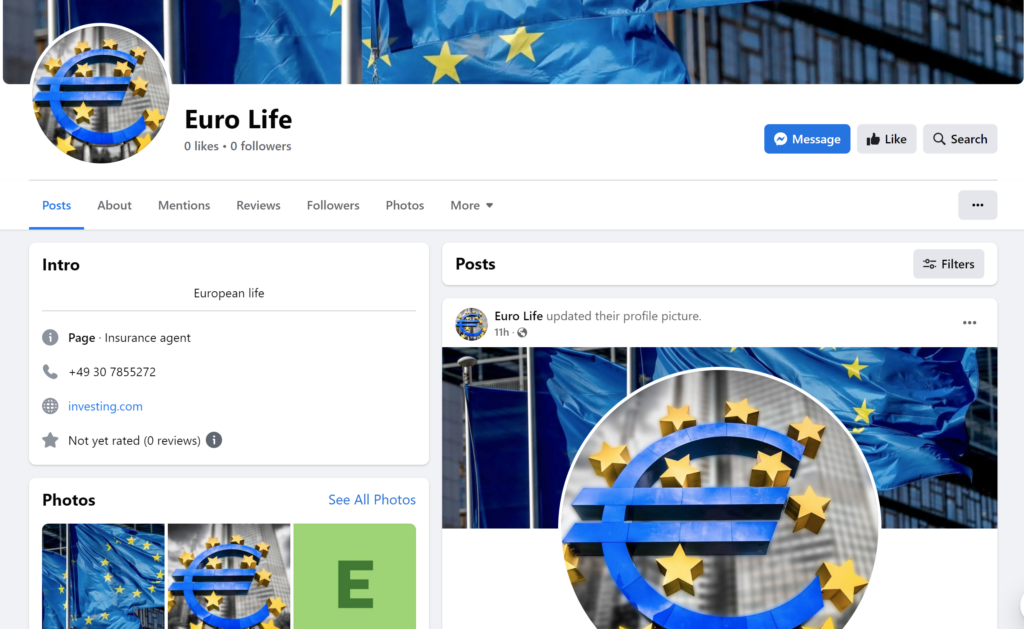
AI-generated audio mixed with real footage
The video promoting the scam borrows snippets from a February 2020 speech delivered by von der Leyen on shaping Europe’s digital future. In the speech, the EC president spoke about how artificial intelligence can be used to improve people’s daily lives, emphasizing that technology needs to be used responsibly if citizens are to trust it.
In an ironic twist, the video takes excerpts from this speech and maliciously combines it with AI-generated audio promoting the fraudulent scheme, in the hope that viewers will be duped.
As the visuals move from von der Leyen’s real speech to stock footage of shoppers and investment traders, her real voice is replaced by an almost identical AI-generated audio track.
The difference between von der Leyen’s voice and the fabricated audio is almost imperceptible for the most part until her formal German accent gradually morphs into a seemingly Australian twang as the video progresses and the details of the scheme are introduced.
‘Your first investment doesn’t have to be large’
A link beneath the video takes users to a website detailing how the scheme works.
The site asks users to register through an embedded online form. After having submitted their name, email, and phone number, it claims that a specialist will call them with more details and instructions on how to set up a portfolio with which they can start investing.
The site assures readers that “the first investment doesn’t have to be large”, going on to suggest that they “start with an amount that you can afford and then multiply it by at least 3 in the future”.
It also welcomes readers with an entirely different video, using snippets of international news reports and describing the scheme as “a way out” of the cost of living crisis.
The video explains how the scheme will help people “earn dividends from the shares of major European corporations” by investing in major European companies such as BMW or Daimler.
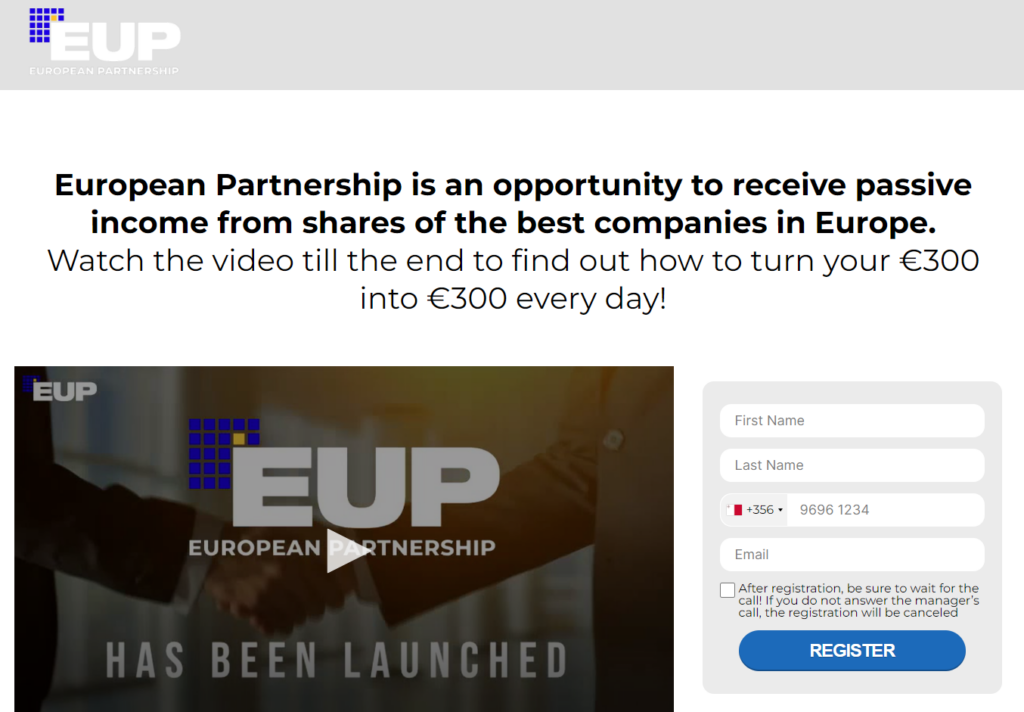
The website also makes several baseless claims about the scheme’s monthly earnings (€12,000) and each investor’s guaranteed earnings (€300 each day, tax-free).
The Euro Life Facebook page frequently repeats these claims in response to questions about the scheme, but it confusingly tends to list the currency as US Dollar, rather than Euro.
Once again, the site may seem legitimate at first glance, but upon closer inspection, various formatting errors emerge, together with other clues indicating that the website is fraudulent.
For starters, the website’s nonsensical URL is unlike any that a legitimate European investment scheme would use.
A deeper dig into the website’s registration details reveals that it was created using Spaceship, a digital platform which allows users to register a website or domain and keep their registration information off public directories.
The site also contains virtually no information aside from instructions on how to sign up for the scheme. It does not contain any information on who is supposedly running the scheme, nor does it list any contact details or names of people involved.

This type of scam is not new.
Times of Malta has previously reported on similar scams using known or trusted figures to legitimise and promote fake operations. With the European Parliament elections looming, it wouldn’t be a surprise to see European leaders and issues feature more heavily in scams over the coming months.
Verdict
The video is fake and being used to promote a scam. The video uses genuine footage of Ursula von der Leyen and AI-generated audio scripts to imply that she is presenting and endorsing the fraudulent scheme.
The scheme’s website reveals how users are asked to register and submit their personal details, telling unsuspecting readers that they can earn a minimum of €300 each day if they are willing to invest their own money into the scheme.
A closer inspection of the website reveals several hints indicating that the programme is not genuine.
This claim is therefore false, as the evidence clearly refutes the claim.
The Times of Malta fact-checking service forms part of the Mediterranean Digital Media Observatory (MedDMO) and the European Digital Media Observatory (EDMO), an independent observatory with hubs across all 27 EU member states that is funded by the EU’s Digital Europe programme. Fact-checks are based on our code of principles.
Let us know what you would like us to fact-check, understand our ratings system or see our answers to Frequently Asked Questions about the service.

